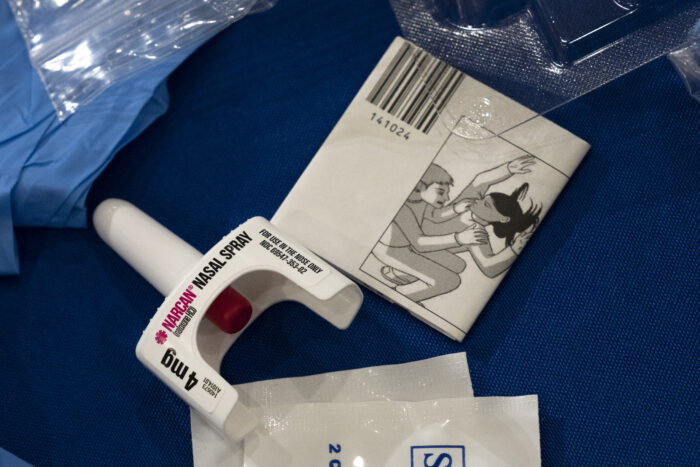Commentary: Opioid and overdose crisis requires long-term strategies to address addiction

By Kathleen O’Brien
The writer was the long-time CEO of Walden Sierra Behavioral Health, a behavioral health organization that served counties across Southern Maryland until 2018 with a comprehensive integrated continuum of care for individuals suffering from the effects of substance use, trauma, and other brain-based conditions. Dr. O’Brien is now the CEO of Walden Wise, a non-profit focused on the emotional health of children.
The opioid and overdose crisis continues, and it has evolved as Fentanyl has taken hold as the cause of 81% of overdose deaths in Maryland. Despite all the amazing work by first responders, health care professionals, and many others across the state, there does not seem to be an end in sight. Gov. Wes Moore has shown tremendous leadership in his first year in office, broadening the state’s response to opioids and overdoses by enhancing coordination between and across all levels of government.
But just as the opioid epidemic is evolving and ever changing, so too must Maryland’s response. Now is the time to take steps to prepare for the future of this crisis.
First, we must take meaningful steps to treat the long-term and underlying cause of this crisis: the disease of addiction itself. To effectively treat addiction, we need to invest in the state’s behavioral health system and to foster collaboration, innovation, and improvement in the delivery of behavioral health services across Maryland.
Today, the limited access to behavioral health services and fragmented integration of mental health and substance use care within the broader health care system too often leads to delayed treatment, worsening of conditions, and adverse health outcomes. A shortage of behavioral health professionals also poses a significant challenge. Variations in the quality of behavioral health services which impact the overall effectiveness of the behavioral health system.
Disparities in behavioral health outcomes among underserved populations, including racial and ethnic minorities, low-income individuals, and rural communities, perpetuate inequalities in access, treatment, and outcomes. Culturally competent care is essential to address these disparities and ensure equitable access to high-quality behavioral health services for all individuals.
In order to address these challenges to our behavioral health system, Gov. Moore and the legislature can help form a Maryland Center of Excellence for Behavioral Health Innovation to serve as a catalyst for transformation, fostering collaboration, research, and policy development to improve outcomes, enhance access, and promote health equity for all Maryland residents. This will help to foster close partnerships with a range of organizations spanning academic institutions, healthcare providers, advocacy groups, and government agencies, forging strong alliances that capitalize on their unique perspectives and capabilities.
This center can drive research advancements, influence policy decisions, and implement evidence-based practices to address the complex needs of the behavioral health population. Together, these partnerships will drive the development and implementation of transformative programs aimed at reducing disparities, enhancing service integration, and elevating the overall quality of behavioral health care in Maryland.
Next, we must expand the workforce of behavioral health and treatment professionals by partnering with Maryland’s esteemed academic institutions to create workforce training and development programs specific to the state’s needs. This will address workforce shortages and enhance the competencies of behavioral health professionals in Maryland, ensuring a skilled workforce capable of meeting the demands. Specifically, to address the opioid crisis and other substance use treatment needs, we need to prioritize recruiting and training both behavioral health professionals skilled in treatment and peer recovery specialists.
Maryland must also ensure our first responders and health professionals have access to all the opioid reversal drug approved by the federal Food and Drug Administration as Sen. Kathy Klausmeier and Del. Nic Kipke have proposed in Senate Bill 408 and House Bill 411. This legislation would require updates to the state’s so-called standing order to include all FDA-approved opioid reversal drugs. This will ensure we are ready for the introduction of new, more effective, or less expensive medicines that may be approved in the future. Several other states have already taken the same step.
In the past, collaborative projects in Maryland’s health care landscape have faced common challenges that have hindered their success. Issues such as conflicting goals, inadequate communication, power imbalances, limited resources, trust deficits, and ineffective leadership have been prevalent. With Gov. Moore providing excellent leadership on the continuing and evolving crisis of opioids and overdoses, we must harness the collective expertise, resources, and collaborative power needed to address the complex challenges faced by Marylanders. Changing our thinking from a crisis mindset to planning and preparing long term will allow us to address the underlying disease of addiction more comprehensively and ensure we are prepared to address the next opioid or other drug like xylazine that could emerge.
Together, we can create a future where every individual has equitable access to comprehensive behavioral health services, where disparities are diminished, and where innovative approaches lead to better health outcomes and improved well-being for all. Instead of being gripped by the crisis of opioids and overdoses, Maryland can be a beacon of hope, driving real and meaningful change in the lives of our communities.




 Creative Commons Attribution
Creative Commons Attribution